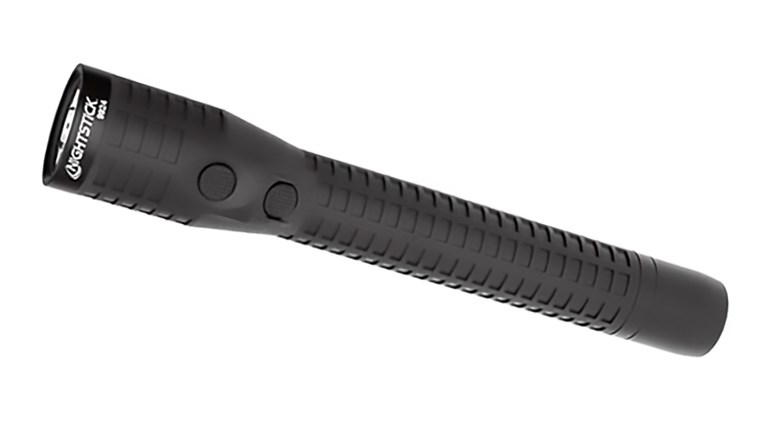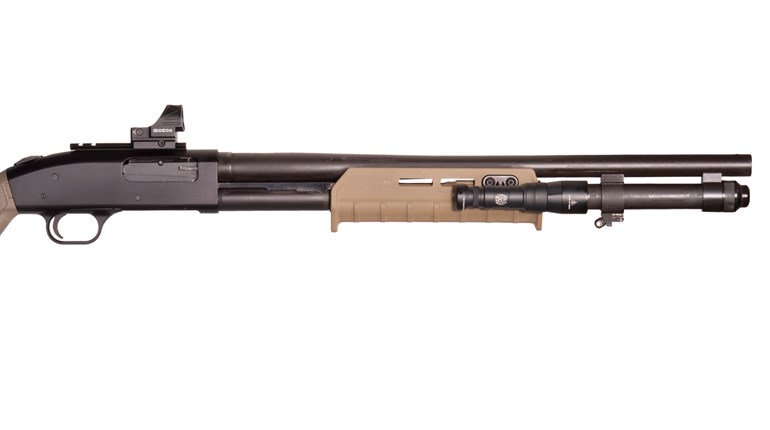
With a little luck, we’ll be winging safely home by the time you read this. Having been forced to tip for good service we may or may not have received, waiting a solid day for luggage to turn up, and gawping helplessly at screw-the-Yanks prices, we will still have had fun in the tropics. We were that determined. Warm waters, balmy breezes, fascinating sea life and incredibly shabby time-keeping helped, too.
For the record, there was also no gloating about recurrent snows at home, either. (OK, that’s a flat-out lie.)
Planning for such travels from a Carry Life perspective, though, is a bummer. Especially if you’re traveling to a British Overseas Territory as we did, get it through your retrograde American head that meaningful self-defense is for all intents and purposes illegal.
Yes, actually illegal. The (pathetic) ancillary fact is that most of the world follows suit: Unless you and your party are young/fit/fleet enough to simply beat feet, you have almost no options until after you’ve been attacked, particularly when outside your domicile—carrying but not using is still considered aggressive and will put you in the wrong. At “home,” your choices are slightly better, but you can still be adjudicated after the fact to have used too much force. Translation? Foreign prison for you, Bub.

For the most part, the huge disadvantages revolve around anything that might be a defensive force “multiplier.” Obviously, firearms are out, but so are a huge number of other tote-ables. What can provide some travel defense may be a vastly smaller pool than you think, even among options that don’t go bang.
Knives
These are mostly out, especially by present-day U.S. standards. Almost anything foldable and over three inches is a no-no to have on your person, to say nothing of using them defensively. Even a legal version becomes illegal if used to threaten (we presume even a defensive presentation is unwise, since you could then be transmogrified into an aggressor). These include almost anything bladed you can think of, even some things classed as “toys” if left at home (yes, seriously). Multi-tools? Yes, in some cases. That handy rope-cutter (with serrations) had better stay behind too, no matter what length. Probably anything that can be opened with one hand will be frowned upon, at least potentially.
Another thought on bladed weapons, one which applies anywhere and anytime: Unless you’ve been trained for and keep training for this, forget it. It implies proximity that you should be vigorously striving to avoid, and even if you “win,” the likelihood of ruinous injury is high.
Tactical Batons
These are most famously the ASP, and still a practical, versatile and rightly intimidating favorite of law enforcement. Next to the racking of semi-auto or shotgun action, or the cocking of a hammer, one of these sliding out is a “no good thing can happen next” sort of sound. Often, this alone is enough to defuse. Even members of other species know this is not good news (many dogs, for instance). An inherently successful communication, we’d argue.
But again, forget it: These are prohibited by name/type where we traveled, and as “law enforcement only” gear in many other locales.
Sprays
At home, literal “mace” has long been law-enforcement-only, but the vision-impairing, breath-compromising and pain-inducing capsicum oleoresins have a good track record in discouraging assaults under limited conditions.
Almost naturally, you’d expect these to be out of bounds abroad too, and …

<<Cue theatrical flourish/dramatic theme>>
… you’d be correct. We found a relatively stupid substitute for sale in Britain, and if some clown is incoming with a bladed or striking weapon, you might have a trivially better chance at evading him. That is assuming, of course, that you can hit your target, and that he isn’t moving too fast for you to escape his momentum—a more injurious problem than many suppose, by the way. At least these dye your assailant for several days and aid apprehension. How this ameliorates a life-changing, closed-head injury, we don’t quite see.
This has always been the problem with sprays of any kind, whether it’s a salty onshore or a bone-chiller off Lake Michigan: If enough spray is delivered quickly and accurately, they work. But practicing and accounting for wind or other movements is essentially impossible, and makes these speculative stoppers at best. Their utility against multiple assailants and directions of assault is also problematic.
The heart of the problem is nothing new: Outside the United States, only a tiny number of governments allow their own residents—to say nothing of tourists—to do anything but “weather the storm.” Scrubbed of platitudes, you’re obligated to wait for official intervention if flight fails, and only grudgingly allowed anything beyond fists or feet. If you think this puts you at a discouraging disadvantage against nearly any assault, you’re right. Luck, first responders (pray there are some) and good insurance will have to see you through.
We did find one thing that is not yet prohibited to the traveler (although batteries can be a problem), and we’ve spoken of it in some detail here and here—the tactical flashlight. While these have shortcomings against multiple assailants and only provide vision-impairment cover under which to flee, they remain much better than nothing. Astonishingly to us—given the banned toy business above—even those with striking bezels are still widely permitted. This is a proximity worry of course, but we’re down to taking what we can get.

Strobing models and those touting more than 200 lumens are also preferable, but the key with either type is speed to action: To be any good at all, they must essentially be in your hand when needed. Fishing for them in pocket or purse is almost certainly too little, and too late.
Never forget, moreover, that Cooper had all this right long ago, and it applies treble when you travel to unfamiliar haunts. Pay attention to your instincts, move around heads-up and eyes open, and take no unnecessary chances, however trivial. No storied chimichanga or pirate’s-recipe rum punch should trump that creepy-crawly feeling at the nape of your neck.
So prop up a sagging foreign economy now and then, even in the face of shocking ingratitude, and Carry on.
Frank Winn has been studying arms and their relationship to tyranny, meaningful liberty and personal security all his adult life. He has also been a competitive shooter with regional and national titles and firearms safety/shooting instructor for more than 20 years, though he won’t admit how many more.


































